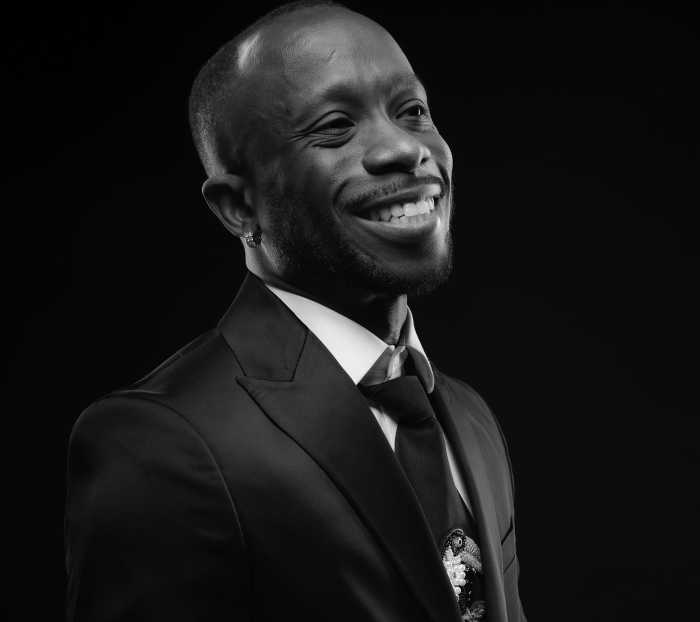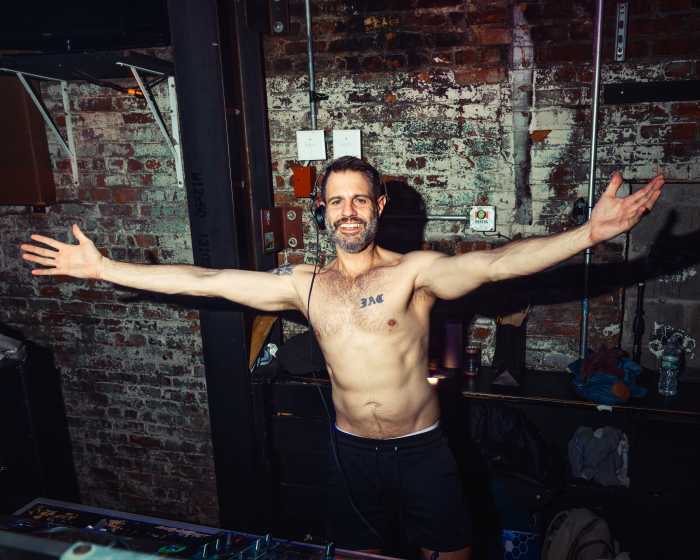Michael Cassidy is a partner at Brown & Weinraub Advisors. He is a trustee and executive committee member of Maria College, chair of the Council of Governing Boards founded with the mission of organizing the trustees of New York’s private, not-for-profit colleges and universities to advocate for policies that benefit the entire Independent Sector, a trustee of CICU, and member of the Rockefeller College advisory board.
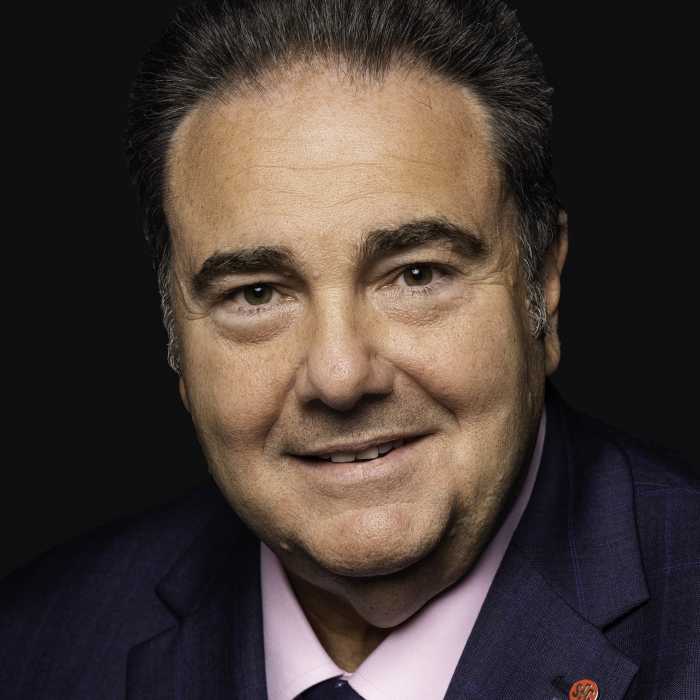
Tim Cecere
President, St. Francis College

Tim Cecere became the 20th president of St. Francis College in April 2024. A Brooklyn native, Cecere brings decades of leadership experience from The New York Times, Newsweek, and WPP, one of the world’s largest advertising, media and public relations companies. Specializing in strategy, operations, and talent development, he has worked fervently to strengthen ties between business and academia. He holds degrees from St. John’s and Columbia Universities.
How has the educational landscape changed in recent years and what are your hopes for its future?
Education has course-corrected toward a student-centered model in reaction to skyrocketing tuition, mounting student debt, and the need for more measurable outcomes. The future will be best shaped through blending real-world preparation with interdisciplinary learning, connecting practice and theory couched in critical thinking. Colleges must balance liberal arts and professional disciplines, ensuring students gain both technical expertise and humanistic insight. This holistic approach prepares graduates to adapt, innovate, and lead with purpose in an increasingly complex and accelerating world.
What do you most enjoy about working in education?
I enjoy bringing a fresh perspective from my three decades in advertising, marketing, publishing, and media. I find it rewarding to apply business acumen to a mission-driven institution – bridging practicality with purpose. Higher education thrives when innovation and common-sense leadership replace groupthink. I’m energized by helping SFC evolve, operate efficiently, and embrace the forward-thinking mindset needed to help students succeed inside and then outside the classroom.
As this year comes to an end, what are your goals for 2026?
My goal for 2026 is strategic growth – guided by the nexus of needs and opportunities within the communities our students serve. Rather than dictating what we teach from an ivory tower of sorts, I aim to work backward from societal and economic demands to shape relevant, forward-looking career-focused programs. This practical, flexible approach allows our college to pivot with purpose, adapt to change, and prepare students for lifelong learning and careers that will need to span decades, free from outdated boundaries or rigid academic orthodoxy.
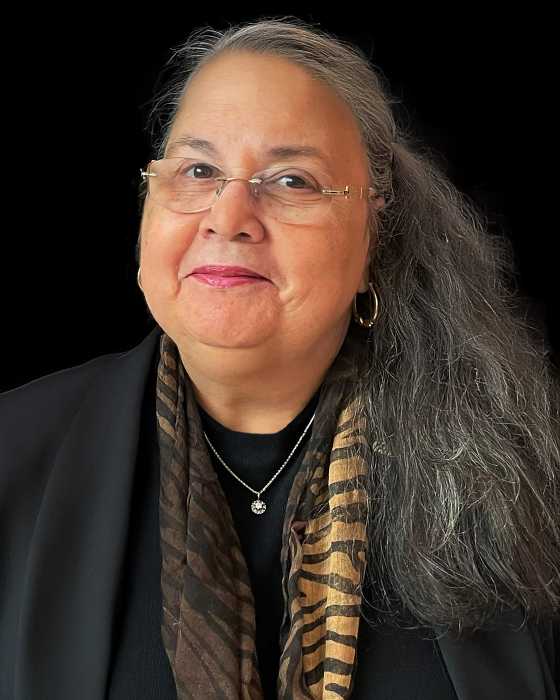
Daisy Cocco De Filippis
President, Hostos Community College, CUNY

Dr. Cocco De Filippis holds a Ph.D. in Latin American literature, an M. Phil in Spanish literature from the CUNY Graduate Center, an M.A. in Spanish literature and a B.A. summa cum laude in Spanish and English literature from Queens College, CUNY. In 2020, she became president of Hostos Community College, where she had served as provost and SVP for academic affairs from 2002 to 2008. She served as president of Naugatuck Valley Community College from 2008 to 2020.
How has the educational landscape changed in recent years and what are your hopes for its future?
I believe in the importance of the liberal arts practically applied. Technology is part of the educational landscape. That is, modalities have taken larger roles with the creation of more asynchronous, synchronous and hybrid instruction. It also created the need for programs in cybersecurity and workshops on the use of AI, and the increasing need to emphasize reading, writing and critical thinking. At Hostos, we address these challenges with hope and engagement with our students.
What do you most enjoy about working in education?
I love to see students’ growth and to have a part in the impact education has on families. We understand that one college graduate creates at least five others in the same family, and that generations benefit from an educated household. I also enjoy my exchanges with faculty, hearing about their passion, research, teaching pedagogies, and knowing I can help facilitate opportunities.
As this year comes to an end, what are your goals for 2026?
Our goals are to stay the course, providing a sound education to a very diverse student body. Fundraising, telling our story and educating donors about the value of what we do here at Hostos is also a big part of our goals for 2026.
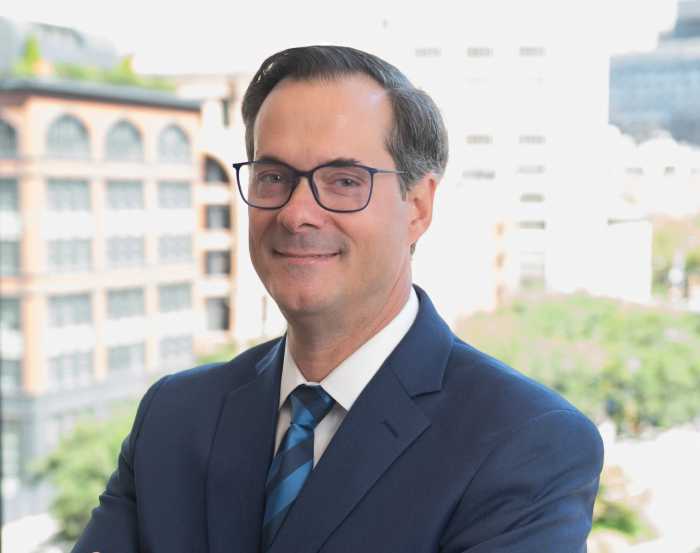
Anthony Crowell
Dean and President, Professor of Law and Faculty Director, Center for New York City and State Law, New York Law School

Anthony Crowell is in his 14th year leading New York Law School. Previously, he served as counselor to Mayor Mike Bloomberg. Under Crowell’s leadership, NYLS is a powerful engine of civic leadership and social mobility in the City. He has established new academic centers, institutes, and leadership programs that capitalize on NYC’s fastest-growing job sectors, including financial services, technology and intellectual property, government and public interest, and in-house counsel and the business of law.

Elizabeth de León Bhargava
Interim President, Guttman Community College, CUNY

Guttman Community College’s Interim President Elizabeth de León Bhargava, Esq. has more than 25 years of federal, state, and city government experience. Most recently serving as assistant secretary at HUD and as a presidential appointee on the White House Initiative on Advancing Educational Equity, Excellence, and Economic Opportunity, her career spans the NYS Attorney General’s office and the City Council. A first-generation college student, she holds degrees from Binghamton University and SUNY Buffalo Law School.
How has the educational landscape changed in recent years and what are your hopes for its future?
Since Guttman opened its doors in 2012, we’ve led many changes in community college education focused on removing the barriers to student success, offering guided academic pathways, reformed remediation, and comprehensive support addressing food insecurity, mental health, and debt. Expanding access is crucial as we continue to be engines of economic mobility and catalysts of opportunity for diverse communities.
What do you most enjoy about working in education?
It’s absolutely the people. I am a New Yorker through and through, and I love being around honest, hard-working people in a city where growth is always happening. I look forward to collaborating, implementing innovative new ideas, and creating community partnerships that will help connect our affordable, high-quality education with potential students throughout the five boroughs. Who’s ready to partner?
As this year comes to an end, what are your goals for 2026?
We know what it takes to graduate students who are equipped to enter the workforce or pursue further study and skill development. At Guttman, we’re all about the data, and from the beginning, we have leaned into research and evidence-based best practices that benefit ALL learners. I want to see more students cross that stage with a degree that propels them and their families forward.
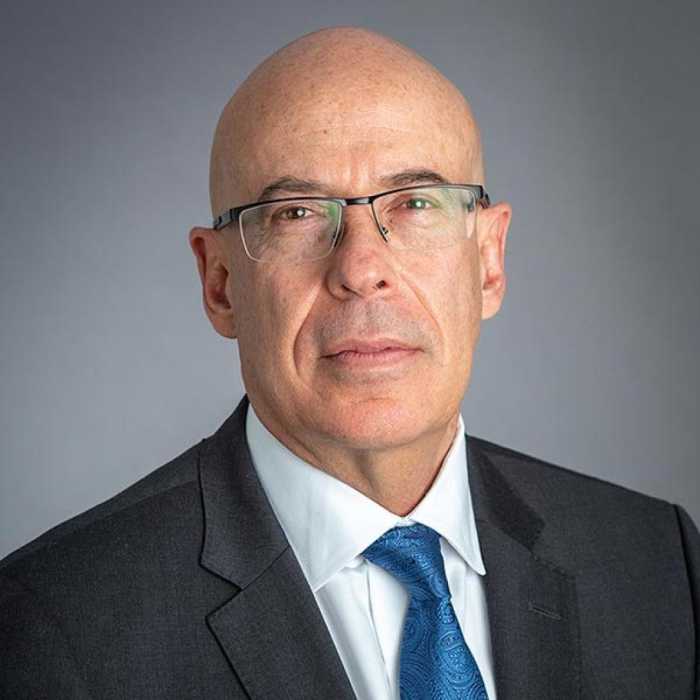
Juan de Pablo
Anne and Joel Ehrenkranz Executive Vice President for Global Science and Technology and Executive Dean of the Tandon School of Engineering, New York University

Juan de Pablo is NYU’s inaugural Anne and Joel Ehrenkranz executive vice president for global science and technology and executive dean of the Tandon School of Engineering. Juan has authored 650+ publications and holds 25+ patents. Founding editor of Molecular Systems Design and Engineering and former deputy editor of Science Advances and Physical Review Letters, his research spans quantum technologies, polymers, proteins, and AI-driven materials discovery, advancing innovations that shape health, technology, and sustainability.
How has the educational landscape changed in recent years and what are your hopes for its future?
Higher education has become more interdisciplinary, with technology dissolving traditional boundaries between fields. The world’s most pressing problems – health, climate, AI – demand collaboration across sciences, engineering, and the humanities. My hope is that universities continue breaking silos, building ecosystems where discovery, entrepreneurship, and societal impact thrive together. If we prepare students not only as specialists but also as adaptable leaders, we can ensure the next generation drives innovation that truly benefits humanity.
What do you most enjoy about working in education?
The students. Their curiosity, creativity, and optimism are endlessly inspiring. Being surrounded by young people who are eager to push boundaries and imagine solutions to global challenges keeps me energized and hopeful. Education allows me to both teach and learn – shaping future leaders while also being challenged by fresh perspectives. That dynamic exchange of ideas is what makes academia deeply fulfilling and ensures that discovery remains a constantly renewing journey.
As this year comes to an end, what are your goals for 2026?
In 2026, my goal is to further solidify NYU as a premier hub for global science and technology. This means recruiting top talent, expanding cross-institutional collaborations, and advancing research that delivers real societal impact. I want to see NYU lead in areas like AI, quantum science, health innovation, and sustainability. Just as importantly, I aim to strengthen the ecosystem that nurtures students, startups, and partnerships, ensuring New York becomes the world’s top destination for discovery.
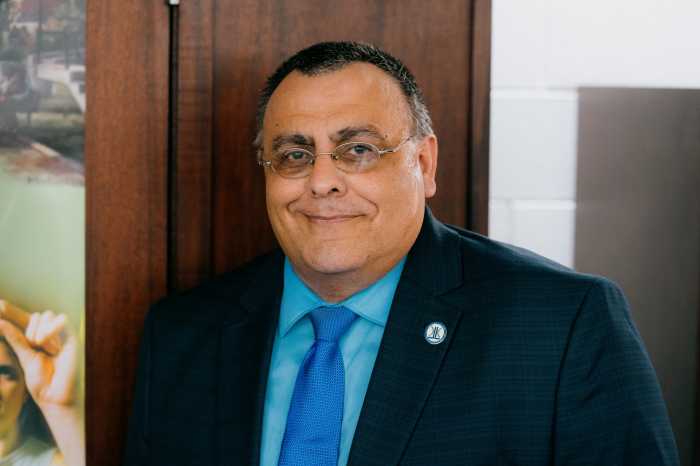
Fernando Delgado
President, Lehman College, CUNY

Appointed in 2021, Dr. Fernando Delgado is the fourth president of Lehman College and proud to lead one of The Bronx’s preeminent institutions; a perennial leader in social mobility. Like almost 60 percent of Lehman’s students, Dr. Delgado was a first-generation college student and applies his scholarship on Latinx identity and popular culture to support all Lehman students. Under his leadership, the College opened a new nursing building and launched a $90 million fundraising campaign.
How has the educational landscape changed in recent years and what are your hopes for its future?
There is no question that uncertainty casts a shadow over much of higher education. It is our job to continue making the case that we are preparing students to play important roles in the world’s culture and economy. If we do that effectively, we will win over the doubters and be able to serve our community by offering pathways to success for every one of our students.
What do you most enjoy about working in education?
The energy Lehman students bring to their studies is almost intoxicating. When I meet with them, I see a better future in their eyes; I see families and whole communities enriched by their passion. To be a part of that is a privilege. No matter what happens outside our campus, I know the work we do inside is vital, important, and gives me faith that the Bronx is in good hands.
As this year comes to an end, what are your goals for 2026?
Lehman College is on the precipice of amazing change. Our new Nursing Building accelerates our ability to meet the health care needs of the Bronx. We are proud pioneers of CUNY Beyond, a program that entrenches job skills and career preparation within the entire academic journey, making our students ready to succeed on day one after graduation. We have also just launched a $90 million campaign to support scholarships, research, and new programs at Lehman.
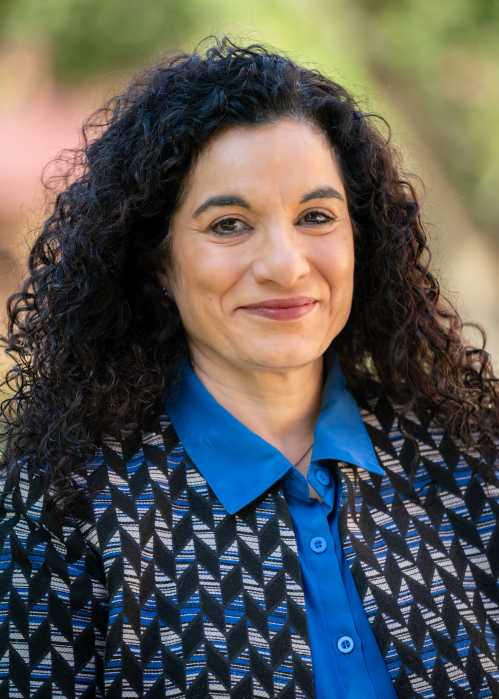
Kavita Dhanwada
Founding Dean, NewYork-Presbyterian Iona School of Health Sciences, Iona University

Kavita R. Dhanwada, founding dean of the NewYork-Presbyterian Iona School of Health Sciences, Iona University, is recognized for advancing health care education through interprofessional collaboration, community engagement, and evidence-based teaching. She earned her B.S. in microbiology from the University of Illinois Urbana-Champaign and her Ph.D. from Loyola University Chicago. An experienced academic leader, she served in administrative roles in Iowa and Illinois. Her leadership embodies Iona’s mission of faith, service, and opportunity, preparing students for impactful careers.
How has the educational landscape changed in recent years and what are your hopes for its future?
In recent years, students and families have placed greater emphasis on the long-term value of education, seeking experiences that prepare graduates not just for their first job, but for a lifetime of change. For this reason, we must design programs that inspire while also equipping students to be flexible across disciplines, challenges, and opportunities. My hope is that we foster adaptability, resilience, and lifelong learning, ensuring that graduates thrive well beyond the classroom.
What do you most enjoy about working in education?
I enjoy witnessing transformation through education. As a faculty member, I loved the “light bulb” moments when a concept suddenly made sense – you saw it in their faces. As an administrator, I value watching students steadily grow in confidence and resilience from their first days on campus to graduation. This step-by-step progression reminds me why this work matters: helping students turn growth in the classroom into momentum for what comes next.
As this year comes to an end, what are your goals for 2026?
For 2026, I am excited to see the School of Health Sciences and Iona University build on our growing national reputation – not only as a place where students master their disciplines, but also where they discover who they want to become. My goal for our health sciences students is that they enter the workforce as empathetic, dedicated providers. Each day reminds me that our work shapes the next generation of health care professionals.
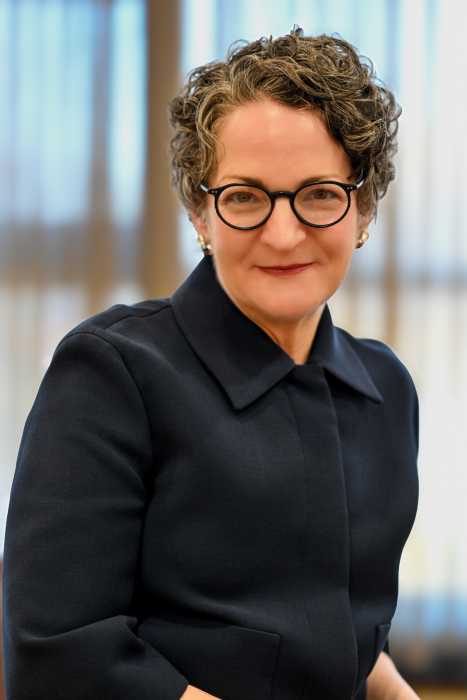
Suri Duitch
President, Kingsborough Community College, CUNY

Suri Duitch is the eighth president of Kingsborough Community College, Brooklyn’s community college, serving over 25,000 students each year. Prior to becoming president in January 2024, she spent her career working in college access, adult education, workforce development, and other opportunity programs in New York City and New Orleans. She holds a bachelor’s degree from Columbia University, an MSW from Hunter College, and a Ph.D. in urban education from the CUNY Graduate Center.
How has the educational landscape changed in recent years and what are your hopes for its future?
So much has changed recently in terms of societal perceptions of higher education, and long-accepted ideas of higher education as a pathway to opportunity for diverse people are under attack. What hasn’t changed: college degrees and meaningful educational credentials are the pathway for social and economic mobility; New York is still powered by the ingenuity and intelligence of immigrants from the U.S. and the world; and CUNY, in particular, is a critical pathway for opportunity.
What do you most enjoy about working in education?
I enjoy so much about working in education, particularly at Kingsborough, a shared sense of mission and opportunities to collaborate with individuals of differing backgrounds and perspectives around common goals. No question – the best part is spending time with our incredible students, who originate in over 100 different countries, have diverse and amazing stories that lead them to KCC, and who achieve so much success after leaving us.
As this year comes to an end, what are your goals for 2026?
The challenges of the moment, politically and economically, have created an opportunity for the Kingsborough community to clarify and recommit itself to its mission of effectively educating diverse students for a complex world. I’m looking forward to leading that work for the college with my colleagues and our many supporters in 2026. Especially during this time, I feel privileged to get to do this work each day.


